“I try to think as little as possible about the past because I still have a future. As long as there is a future it is not healthy to look behind you”, mulls veteran filmmaker Krzysztof Zanussi to me across the table in Shoreditch’s Close-Up cinema coffee shop space. “We are all narcissistic,” he adds. “We are all tempted to look in the mirror and admire ourselves. It is not a healthy process, so the best is to forget.”
Zanussi and I are not long acquainted but the esteemed director of some 51 years and 52 features showcases a sparkling acuity, which intimates not an iota of decline as he wades his way through his autumn years. Now almost 80 years of age, his inquisitiveness remains sharply intact. He questions me about the site I am writing for, asks me about my background and queries my outlook on life. In fact, rarely have I encountered someone so engaged, and thereby engaging, in the interview process.
He is in London for Kinoteka, the Polish Film Festival, which is celebrating its 9thyear. Presently, however, he is bemoaning modern culture and political correctness. “Our whole culture has developed this tricky way of not judging anything through political correctness,” he sighs. “But what postpones the problem also makes it deeper. (Political correctness) is a painkiller, not a cure. Of course people don’t fight when they are not going to be compared. People say ‘everybody is different’, ‘diversity is the ultimate value’. No, perfection is the best outcome.”
“You must say what is best for your life and it may be different for what is best for another person. You assess which choices are better than other choices. But then you have judged. And when you judge you are considered antisocial, cold and arrogant. It is better not to judge.”
“It is not a given that freedom is for forever”
Born in 1939 in Warsaw, Zanussi was brought into a world torn apart firstly by the Second World War and then in a country subsequently enduring the strictures of Soviet communism under the banner of the Polish People’s Republic (1947-1989). “Maybe it is because I carry 80 years on this earth, but I remember a world that was far more normal than it is now,” opines the filmmaker. “Normal?” I counter. “Yes,” he responds, before leaning further forward. “Nobody is shooting each other on the street now. Almost nobody is starving in developed countries. This is marginal. Whereas then it was a rule: suffering was a rule; violence was a rule; injustice was a rule. This particular world was terrible but our perception was more real. We knew better our condition because we knew the dangers.”
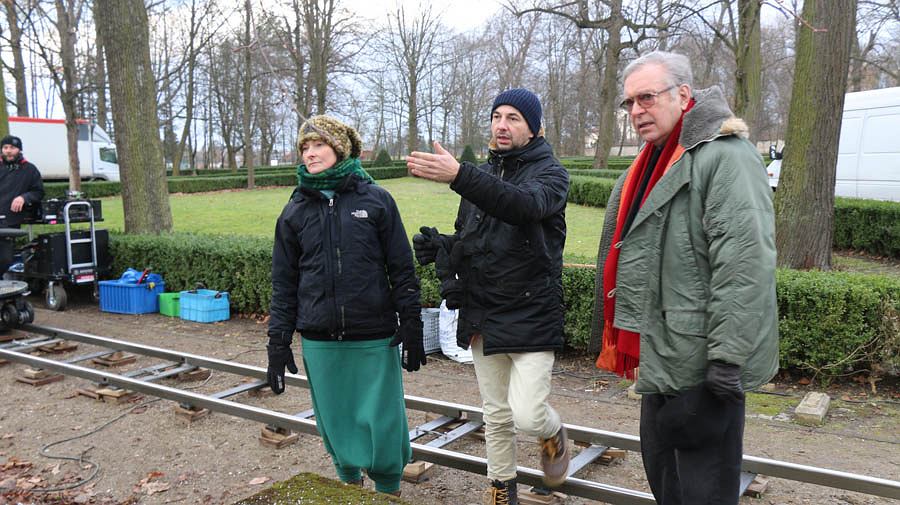
“Today evil is like a caprice”, he observes. “Whereas, before, there was a substantial evil: people who wanted something bad to happen to others. There is an opinion about the banality of evil. Evil is not banal. Some people are banal. Eichmann was banal, but the evil he created was colossal (Adolf Eichmann was one of the architects of the Holocaust). We forget that such evil is possible and exists. People now take frivolous decisions believing that nothing can happen to them.”
“My favourite sermon has two visions of the world”, he presses on. “One is this modern, bucolic vision that life is a walk in the garden – everything is safe and you can go left or right. Another is that life is like crossing a jungle – one wrong step and you’re in trouble and you will pay for it. I think this latter version is more realistic. People don’t see the danger today (in western culture). They don’t want to see it. They believe that everything is safe so we are permitted to do what we want. Some choices are very frivolous. Political choices also. People don’t appreciate that we may become a slave again. It is not a given that freedom is for forever.”
“There are questions that have no answers”
I ask him as to whether this outlook, informed by living through the constraints of the communist era, fuelled work such as 1977’s Camouflage. “To some extent, yes. Did you know that I made a sequel to it 5 years ago? It is called Revisited and I took three films of mine, including that and Family Life, and I shot a sequel where I revisited the leading character and shot a fake interview and told what happened later.”
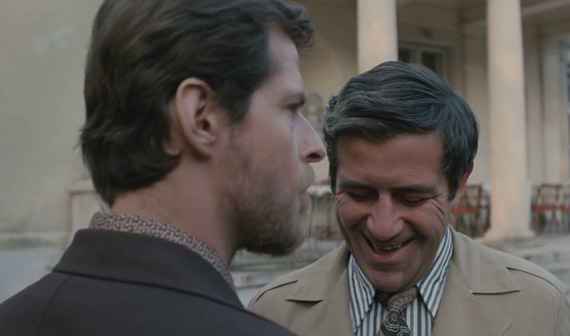
He continues, “The evil protagonist in Camouflage turns out to be an opposition activist, a dissident. Against all the odds, he is the good one. The one who was an idealist is a conformist. He finally has chosen money. Of course it is written. It is not true. This is just my fantasy, but I wanted to comment that people are not as determined as common opinion believes. Someone who is evil should remain such? No. He has reformed.”
“As an ex-physicist, I am much more taken with the modern concept of physics, which says, ‘probability is running the world, not determinism’. Classical physics is all based on determinism, modern physics is far probabilistic. Things may or may not happen and you’ll never know why. There are questions that have no answers.”
“For Kieslowski, recognition came too late”
Aside from his own career, Krzysztof Zanussi helped to produce many of his celebrated compatriot Krzysztof Kieslowski’s movies and even took the lead acting role in his 1979 film, Camera Buff. Unfortunately, Kieslowski passed away as a result of a heart attack in 1996 at the age of 54, having not long completed his move from pariah of the film fraternity to lauded nonpareil.
“I witnessed many years of his solitude when he was not recognised as a first-class director”, Zanussi reflects. “Most festivals rejected his films and were suggesting to me, as his producer, ‘don’t send his work, don’t delude yourself, he is a local auteur of no interest to the wider public.’ This was the case in Cannes, Venice and many other festivals. And I knew that they were wrong.”

“There was a time when I was far more well-known than him. Suddenly, this reversed. It was almost by coincidence. His film A Short Film About Killing was taken on at Cannes because they had one film missing for the competition. Finally, they said, ‘okay, we’ll take it’. It was a shock when it won the festival. The director of the festival didn’t expect it. It ruined their opinions.”
“For Kieslowski, recognition came too late,” he mournfully observes. “Success must come at the right time. If it comes too early, it is a trap. If it comes late, it can make you bitter. He [Kieslowski] didn’t believe one single word of flattery. ‘You could have said this five years ago, not now.’ He was terrible with journalists. After every question, he would say, ‘do you really want to know?’ People were really afraid, because he’d read in their eyes that they were not interested and that in five minutes time they will interview another star and ask them what they take for breakfast.”
Was this really always the case? Zanussi thinks for a moment. “Well, he was very polite and co-operative when he felt somebody was really interested. Usually he was asking questions. He was a very good psychologist. He helped many people by asking them, ‘what are doing here? Why did you choose this profession? This is not your vocation. I can see it in your eyes.’ He was really interested in other peoples’ lives. If I learned something from him, it is this kind of attention and involvement.”
A silence falls on our table for a few seconds before he resumes with a left-field and unexpected connection. “Another person with a similar quality was [Pope] John Paul II. I knew him quite well privately from the time when he was a very young bishop. And that was the first thing that struck me. I was in a private house with my colleague and we were studying for an examination and then his parents came and said, ‘okay, time for supper and we have a guest who is a local bishop.’”
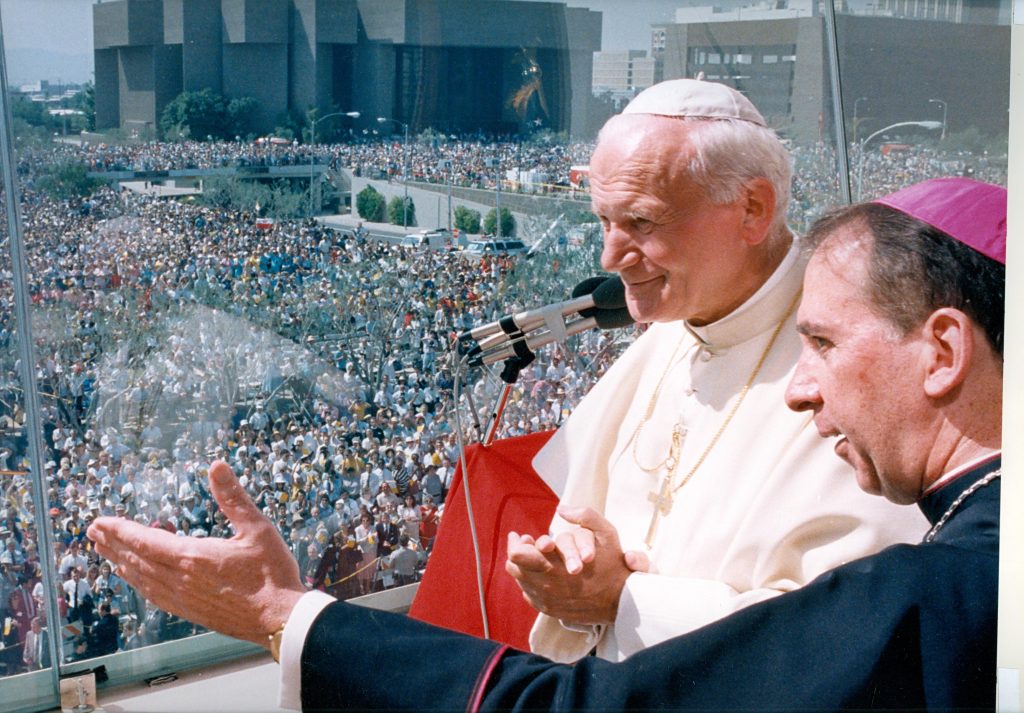
“I met this local bishop who was older than me by quite a few years, of course, and I was astonished. Why does he listen so attentively to what I say? Why does he ask me questions? I am a nobody. As was his style, he said to me, ‘this is what human beings should learn. Listen to everybody and try to understand who you are talking to’.”
“Life is something exceptional”
With our time running to a close, and having not long released his last feature Eter, I ask what else he may have lined up, if anything. “At my age, you don’t make plans but you have some hope,” he says with a smile. “I have one script that I am trying to secure financing for and another one for television. Maybe, by some miracle, I can have a chance to make a miniseries. I still have some aspirations.”
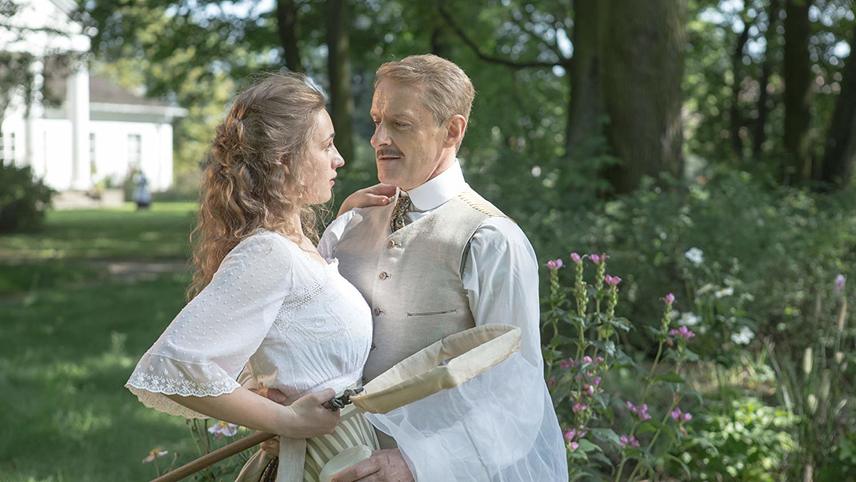
Observed at close hand, his enthusiasm is infectious, but the work rate itself is something that is simply astonishing. As our meeting wraps up, I quickly enquire as to what he thinks it is that keeps him so motivated. Does he even know?
His answer is sobering and also rather poetic. “It is very hard to say what it is,” he utters initially before pausing thoughtfully and reaching for a conclusion. “It might sound pretentious or pompous but, because of my childhood during the wartime, I was never able to take life for granted. I think it is something special. For some reason, my father died and I feel an obligation. I have to do something with it. I cannot just sit and relax, because life is not something I am simply entitled to. It is not what I have a right to. Life is something exceptional.”
“People are dying under bombs. People are being tortured. People are starving. If I am not, then I have this feeling that I must do something to justify my existence. I see that people now take life for granted and they have the illusion that they have a right to live.”

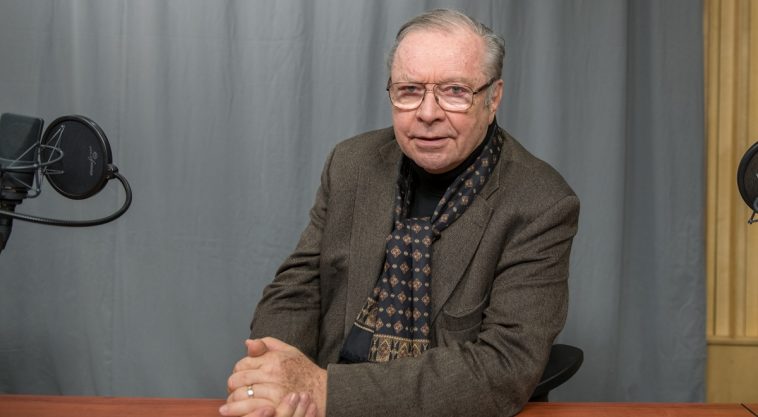





Leave a Comment